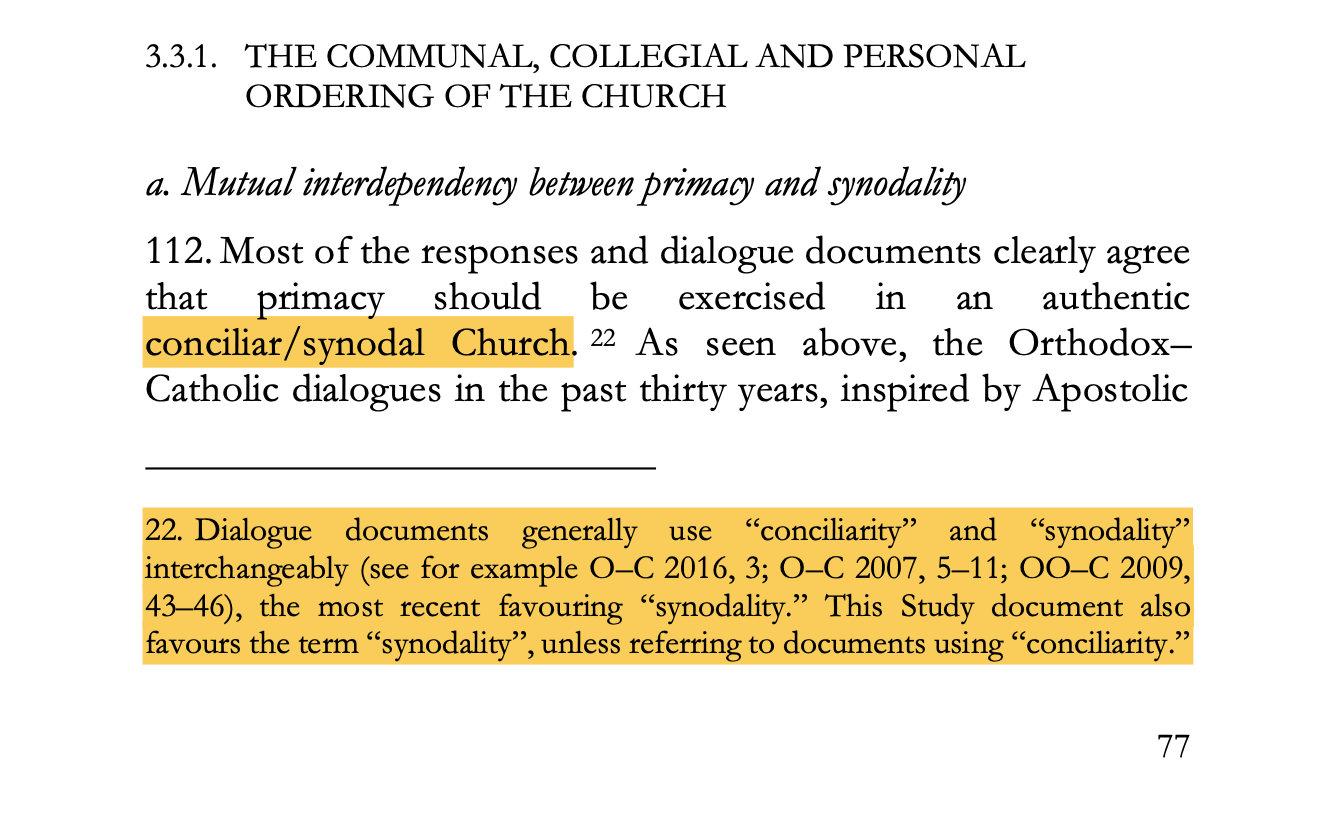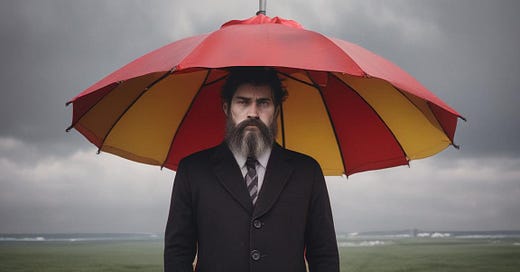Powerful arguments against traditionalists unintentionally destroyed by Prof. Andrea Grillo
In his attempt to condemn traditionalists, Italian Professor Andrea Grillo unintentionally refutes a common argument for Francis's claim, and thus defends sedevacantism itself.
Grillo’s Anti-Traditionalist Interview?
Rorate Caeli published Messa in Latino’s interview with Professor Andrea Grillo, translated by Diane Montagna.
Rorate Caeli calls Grillo “the main lay ideologue” behind Traditionis Custodes.
The main interest with this interview is how much Grillo gets right, although some traditionalists – namely, those still reluctant to be fully separated from the authorities of what Cardinal Koch has called the “conciliar/synodal church” – will no doubt deny this.
We started using the term “Conciliar-Synodal Church” in December 2023, to refer to the latest incarnation of the conciliar church of Vatican II. Koch’s use of this term raises the question: Have he and others in the Vatican been reading The WM Review? See below from the June 2024 Vatican document The Bishop of Rome:

But the point is this: if Grillo is indeed right in his characterisation of traditionalists, then we traditionalists have a lot to be encouraged about. He unintentionally provides powerful arguments for all traditionalists, and refutes one of the most powerful arguments against sedevacantism – thus showing us the route out of the current situation.
This may sound strange. Let’s dig into the main points of this interview and explain.
How old is the problem – and what strengthens/undermines the faith?
At one point in the interview, Grillo is asked about the crisis in vocations, donations, baptisms and so on. He denies that this is a problem caused by Vatican II. He presents this as the “post hoc, ergo propter hoc” fallacy, and asserts that the problem began a century ago.
We must agree that this crisis was indeed developing beforehand, but we must also insist that the Council represented the opening of the floodgates. Grillo is whistling past the graveyard if he thinks that he can deny the known truth here.
Building on this idea, Grillo lists a long series of factors which, in his view, do not strengthen the faith – including vestments and dead languages. But nobody thinks that bare externals such as these strengthen the faith in themselves.
What strengthens the faith is the teaching of the faith, and the profession of the same. The liturgy and its trappings are key means by which the faith is taught, and professed. Such externals might indeed be nothing in themselves, but they are of value in so far as they assist the teaching and profession of the faith, and the cultivation of the other theological virtues.
However, we should note that the preservation of tradition was commanded by St Paul, and is an exercise of the virtue of piety.
Further, it is a principle of reason, recognised by St Thomas, that all changes to law cause a certain harm, because change is contrary to custom – which has a powerful, normative effect on the observation of all laws.
As such, any change to any law (including the use of externals mentioned) causes a certain harm, and the good to be achieved by such a change must be sufficient to compensate for this harm. This is why St Thomas quoted the Decretals:
“It is absurd, and a detestable shame, that we should suffer those traditions to be changed which we have received from the fathers of old.”[1]
Grillo, by contrast, asserts that holding on to time-honoured traditions is “nostalgia.” This is simply an admission that the “current” religion is significantly different to what came before it.
But is this possible?
Begging the question and changing the religion
Throughout the interview, it is clear that Grillo thinks that the Church has indeed changed – the model of “17th or 18th century priests” is to be abandoned; as are the ritual forms, vestments and “dead languages” and “honor society.”
It is beyond any doubt that this has happened. He concedes that it has happened, and presents it as a good thing. He would claim, presumably, that the Church and religion has remained the same in spite of these changes.
Towards the end of the interview, Grillo astonishingly claims that traditionalist arguments “are weak because they deny what best describes tradition: namely its service to change.”
But what else is conceded or implied here?
First, the facts. Within living memory, the received religion practised by our recent forebears, many of whom we knew personally (e.g., parents, grandparents and great-grandparents), apparently underwent a wholesale revolution. This process changed nearly every aspect of their religion – not just things that had passed away in the 18th century, nor just the vestments of Cardinals which few Catholics ever saw.
Their religion was deconstructed, and then reconstructed with a mixture of original and new materials. This is why so many of those who experienced it said: “They changed the religion.”
Some, presumably like Grillo, say that the essentials remain, but this is simply begging the question that such a revolution is possible in the first place. For one thing, is the faith and religion of Christ so abstract that it can suffer such changes? Are we immaterial creatures for whom visible things are so arbitrary?
This is far from clear. If a house is demolished, and a new house is rebuilt with a mixture of original and new materials, even according to an identical design (which the Vatican II revolution was not), can we really say that it is the same house?
It is for Grillo to prove that this can be; and he will not do so, because it cannot be proved.
However, anyone who does presumes to deconstruct and reconstruct the true religion in this way surely leaves this religion in the process. This may also be so for those who defend such a process.
But all this points to the most encouraging point of all in this interview.







